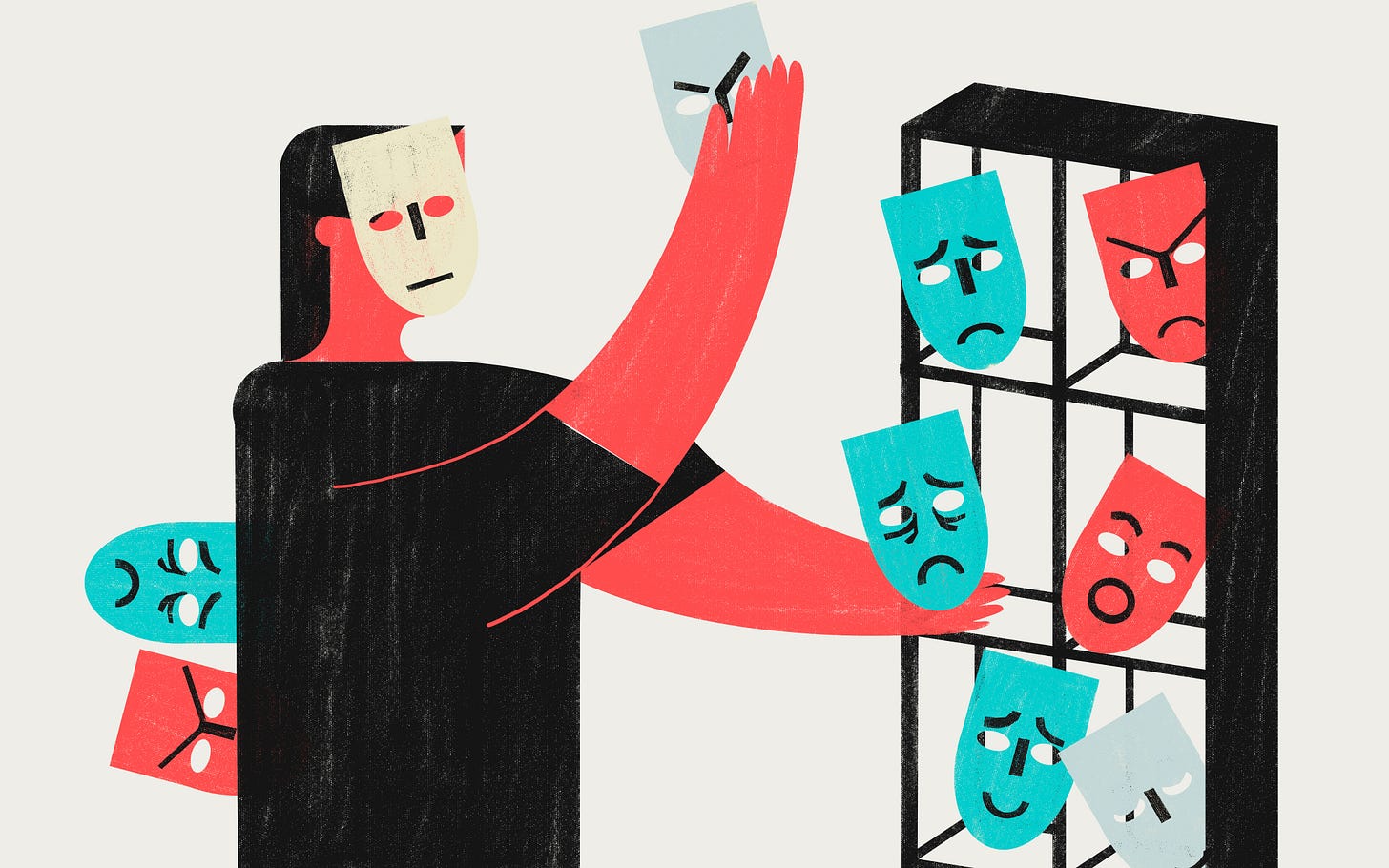Can We Learn Empathy?
Psychologists say yes. Let's hope they're right.

“The fundamental weakness of Western civilization is empathy.” — Elon Musk
Every day that brings a fresh batch of horrors, I think, “This is it. This is the bridge too far for the American people.” And every time, I’m wrong.
There’s always seems to be a justification for human suffering.
A four-year-old American child is denied treatment for Stage 4 cancer and deported along with his mother? Well, the mother’s undocumented.
A Tufts doctoral student is abducted by ICE for co-authoring an op-ed urging the university to divest from companies with ties to Israel? Well, she’s an enemy of the state.
Noncitizens summarily shipped to a Salvadoran prison known for human rights violations? Well, they’re criminals.
The de facto genocide of migrants at the southern border? Well, they should’ve come here the right way.
Invoking the Alien Enemies Act last month, this administration gave ICE an abundance of latitude via “reasonable belief,” a euphemism for carte blanche, that effectively permits entry into residences without a warrant.
All of which leads me to wonder, “What wouldn’t Americans tolerate?” Where is the line? Because we don’t ever find it, try as we might.
What if the Border Patrol were to begin exterminating migrants systematically to make room in detention centers for new migrants? Would Americans still resort to their “Come the right way” refrain? I don’t want to learn the answer to that question.
Stitched into the ethos of the manosphere is the belief that empathy is a weakness, a view enshrined by Edgelord Supreme Leader Musk in a recent Joe Rogan podcast. Brandon Gill, a House representative from Texas, was so eager to take potshots at noncitizens that he quipped about bypassing due process. Thankfully, Surowiecki was on hand for a decisive rebuttal.
An elected official is happy to throw due process out the window because it jibes with the current zeitgeist. Never mind that due process of law is afforded to all people, not just U.S. citizens, by the Fifth and Fourteenth Amendments of the Constitution, a document that too many conservatives invoke much like they do the bible: Only when it’s convenient for their argument.
Due process? More like, do NOT process.
Turn the other cheek? More like, shoot you in the cheek.
But lack of empathy isn’t a strength. It’s a weakness, an indicator of narcissism, the cornerstone of psychopathy, and a vestige of our primeval state. Every unspeakable act committed by one group of people against another group of people was powered by an abiding absence of empathy.
Is lack of empathy a built-in feature of today’s society? Is it hopeless? Or can we learn empathy? In an interview with the Stanford Report in 2019, Stanford professor of psychology,
, argued that we can learn empathy.“Empathy is something like a muscle: left unused, it atrophies, put to work, it grows.”
Zaki pointed out that empathy runs dry when we divide people into groups.
“One of humans’ most natural tendencies is to divide people into ‘us and them.’ This is also one of the fastest ways to snuff out empathy. We stop seeing outsiders as humans and start reducing them to their ethnicity, age, opinion— whatever divides them from us. But this process can be reversed, by recapturing our sense for people on the other side of a conflict as just that—people.”
How does one go about recapturing our sense for people on the other side of a conflict as people? Zaki uses the story of Tony McAleer, a former neo-Nazi and co-founder of the Life After Hate nonprofit, as a case study for recapturing empathy.
“He and other founders of Life After Hate reformed after meeting people they were supposed to despise, who refused to hate them back. For example, shortly after leaving the neo-Nazi movement, Tony confessed his past to a Jewish man. ‘That’s what you did,’ his new friend responded, ‘but not who you are. I see you.’”
Several psychologists in an American Psychological Association article from 2021 agreed that exposing oneself to differences can help cultivate empathy. Shereen Naser, PhD, a professor of psychology at Cleveland State University, recommended consuming diverse media, that is, books and movies from other cultures. Naser encouraged her graduate students to visit communities unfamiliar to them.
“One student came back saying they felt like an outsider when they attended a Hindu celebration and that they realized that’s what marginalized people feel like every day.”
In other words, the arts and cultural immersion are good at nourishing empathy. The problem is, you can’t force people to do those things, but what you can do is keep telling your stories, loud and often, so that they can’t be ignored.
They say, “You can lead a horse to water, but you can’t make it drink.” In our case, you can’t lead a horse to water nor make it drink, but you can make the water so bountiful that the horse can’t avoid it, at which point it might as well drink the water.


Seems like we were working on a similar wavelength recently. This piece makes so many great observations and offers people methods within reach to achieve improvements we seek. It and my latest piece seem to complement each other too, if I may be so bold to say so. Great piece.